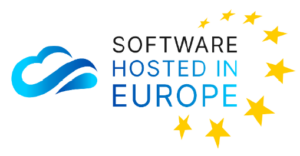Introduction to SEPA Direct Debit
The Single Euro Payments Area (SEPA) continues to revolutionize euro transactions across Europe. Created to unify and simplify cross-border payments, SEPA supports efficient euro bank transfers within 36 participating countries.
SEPA Direct Debit (SDD) is a crucial feature of this system. It enables businesses to collect payments from European customers through a standardized, automated process. While highly convenient and cost-effective, traditional SEPA Direct Debit can sometimes present uncertainties that impact financial planning.
Understanding SEPA Direct Debit
How SEPA Direct Debit Works
SEPA Direct Debit allows businesses to withdraw funds from a customer’s bank account after obtaining a one-time authorization called a “mandate.” Once in place, this mandate facilitates recurring or one-time payments with no further action needed by the customer.
There are two variants:
-
SEPA Core Direct Debit: For individuals and businesses, with an 8-week refund window.
-
SEPA B2B Direct Debit: For business transactions only, offering better payment certainty and no refund rights.
Why Businesses Use SDD
It provides streamlined processes, enhances customer convenience, and supports recurring billing models across Europe.
Challenges in Traditional SEPA Direct Debit Payments
Despite its utility, SEPA Direct Debit can involve some risks for merchants.
Risk of Failed Transactions
Payment failures due to insufficient funds, revoked mandates, or incorrect account details can result in revenue loss and added administrative overhead.
Refund and Chargeback Rights
Consumers using the Core SDD scheme have the right to request a refund for authorized transactions within 8 weeks, introducing unpredictability for businesses relying on timely payments.
The Concept of Guaranteed Payments
What Does “Guaranteed” Mean?
A guaranteed payment ensures that the merchant receives the funds, even if the customer defaults or cancels the payment. A third-party provider or financial institution assumes the risk, thereby removing uncertainty from the payment process.
Industries That Rely on It
Subscription-based services, utilities, telecommunications, insurance, and other industries with high transaction volumes often leverage this solution to stabilize income streams.
How Guaranteed Payments Work in SEPA Direct Debit
The Role of Payment Providers
Specialized payment providers offer guaranteed SEPA Direct Debit services by assessing risk, validating mandates, and stepping in to ensure that businesses receive payment—even when the original transaction fails.
Risk Management and Technology
These providers use intelligent algorithms and data analysis to evaluate customer reliability and manage risk, enabling real-time guarantees for each transaction.
Benefits of Guaranteed SEPA Direct Debit Payments
-
Minimized Payment Failures: Avoid losses due to returned or disputed transactions.
-
Consistent Cash Flow: Receive funds on time, improving budgeting and planning.
-
Operational Streamlining: Reduce time spent on follow-ups, re-billing, and debt collection.
-
Financial Predictability: Simplify forecasting and business strategy through predictable receivables.
Who Can Benefit from Guaranteed Payments?
Whether you’re an SME worried about liquidity or a large enterprise managing complex receivables, guaranteed payments can change the game by providing stability and predictability to your cash flow.
Best-Suited Business Models
-
SaaS & Subscription Services
-
Insurance Providers
-
Utility Companies
-
eCommerce with recurring billing
These models typically rely on high-volume, recurring payments—making them ideal candidates for guaranteed payment solutions to reduce the risk of failed transactions.
SEPA Direct Debit vs. Other Payment Methods
| Payment Method | Guarantee Available | Cross-border Compatibility | Cost |
|---|---|---|---|
| SEPA Direct Debit | Yes (with providers) | High | Low |
| Invoice Payments | Yes (with providers) | Medium | Medium |
| Credit Cards | Yes (via card schemes) | Medium | Medium |
| Bank Transfers (SWIFT) | No | High | High |
| Instant Payments | No | Medium | Low |
How to Enable Guaranteed Payments for SEPA Direct Debit
Technical Integration
Enabling this feature typically involves:
-
Connecting to a qualified payment provider via secure APIs
-
Collecting valid SEPA-compliant mandates
-
Automating transaction tracking and verification
Implementation Tips
Ensure mandates are digitally stored, customer communication is clear, and your internal systems are aligned with the provider’s workflow to streamline operations.
Costs and Fees Associated with Guaranteed Payments
Although guaranteed payment services carry a premium compared to standard SEPA transactions, the value lies in mitigating payment risks and stabilizing cash flow. Businesses can offset this cost through reduced chargebacks, lower collection expenses, and fewer service disruptions.
Security and Compliance Considerations
Data Protection under GDPR
Payment data, including mandates and customer details, must be handled in compliance with GDPR. Providers must ensure secure data encryption and storage practices.
Regulatory Compliance
The service should align with PSD2 requirements, even though SCA (Strong Customer Authentication) isn’t mandatory for SEPA Direct Debit. Still, robust fraud monitoring and audit trails are essential.
Real-World Use Cases and Success Stories
A Regional Utility Provider’s Success
A European utility firm implemented guaranteed SEPA Direct Debit and significantly reduced their payment rejection rates. They improved their average Days Sales Outstanding (DSO) and lowered the need for outbound collection calls—freeing up internal resources for more strategic tasks.
Choosing the Right Payment Partner
Essential Features to Consider
-
Seamless API integration
-
Mandate lifecycle management
-
Compliance with SEPA and GDPR
-
Automated risk management
-
Real-time payment insights
Choosing the right partner ensures not just access to guaranteed payments but also to broader digital transformation in your billing processes.
Future of Guaranteed Payments in Europe
With digitalization and open banking gaining traction, the demand for guaranteed payment solutions is set to rise. These services are evolving beyond finance, potentially supporting sectors like healthcare, education, and government payments in the coming years.
FAQs About Guaranteed Payments for SEPA Direct Debit
1. Are guaranteed SEPA Direct Debits reversible by customers?
In most cases, no. When the guarantee is active, the risk of reversal shifts to the provider, giving businesses peace of mind.
2. Is a physical mandate required?
No. Digital mandates are fully acceptable as long as they comply with SEPA standards.
3. What happens if a bank account has insufficient funds?
With a guarantee, the provider covers the transaction, and the merchant receives the funds without delay.
4. Are guaranteed payments suitable for all industries?
Yes, particularly for recurring and large-volume billing models.
5. How long does it take to implement this service?
Integration is typically quick and depends on internal systems and provider readiness.
6. Is this service available across all SEPA countries?
Yes, guaranteed payments can be used throughout the entire SEPA region.
Conclusion
Guaranteed Payments for SEPA Direct Debit offer a robust solution to some of the most persistent challenges in European business transactions. They bring certainty, streamline operations, and support scalable business growth. Whether you’re aiming to improve revenue predictability or reduce administrative stress, it’s a strategic option worth exploring.
As a licensed Bafin-regulated payment institution based in Germany, Novalnet provides guaranteed payment solutions for SEPA Direct Debit, Invoice, and Credit Card transactions, supporting businesses in ensuring reliable and secure payment collection across Europe.

Antony Robinson is an experienced IT expert, information architect and a customer experience evangelist. He has over 30 years of experience in web technologies, user experience, media, and marketing. Antony is currently the CMO of Novalnet AG, a fintech company in Germany. As CMO, he leads the company’s marketing strategy and fosters collaborations. Antony’s expertise and dedication to technology and innovation make him a valuable leader in his field.












